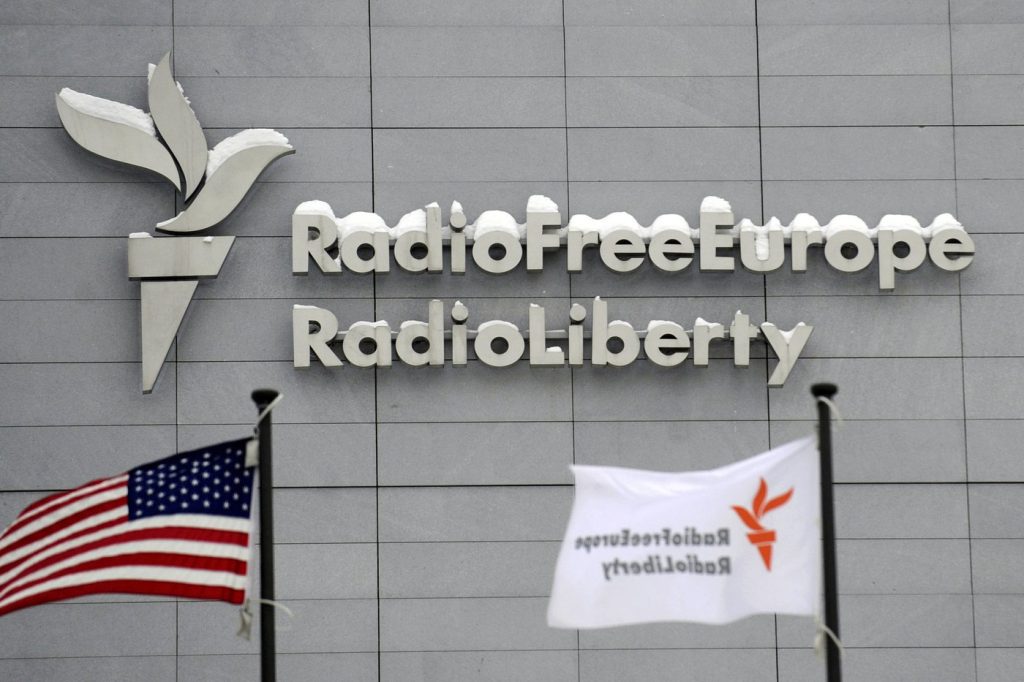In the early days of Israel's attack on Iran, U.S.-operated Radio Farda was involved in debunking Iranian state media claims about an Israeli pilot allegedly being shot down and captured. The outlet, which broadcasts in Persian, has remained active despite challenges from the Trump administration threatening its future operations, alongside the Persian-language television service provided by Voice of America (VOA).
Radio Farda, a part of Radio Free Europe/Radio Liberty and located in Prague, has continued to broadcast news updates, with its managing editor noting that more than half of its staff had been furloughed. In a recent development, VOA’s Persian staff, also ordered on administrative leave in March, received notifications to return to work suddenly last Friday.
Golnaz Esfandiani, managing editor of Radio Farda, explained that the network has been providing Iranians with timely updates about the ongoing conflict, including stories about Iran's nuclear program and engaging social media content. Feedback from Iranian listeners has been positive, as many express gratitude for news they cannot access through state media. However, there are reports of pressure on the families of Radio Farda staff members from government officials who wish to silence their broadcasts.
The Trump administration has attempted to dismantle or significantly limit U.S.-government-funded media organizations that serve countries lacking a tradition of free press. The administration alleges that these services operate with a liberal bias, including both Voice of America and Radio Free Europe/Radio Liberty, which are currently challenging these actions in court.
Employees received an email from Crystal Thomas, human resources director of the U.S. Agency for Global Media (USAGM), notifying them that they were being recalled and needed to report back to work immediately. One employee reported they were able to arrive at the office within three hours and stayed to produce a one-hour broadcast, with about 50 personnel returning to their posts. While Voice of America is officially banned in Iran, many Iranian citizens find ways to bypass this ban to access its content.
Recent updates indicate that producing broadcasts and social media posts has become increasingly challenging for VOA, as its administration has canceled subscriptions to major news services like The Associated Press, Reuters, and Agence France-Presse. For the journalists involved, this has created significant stress as they generate urgent news reports without a concrete understanding of their job security.
Patsy Widakuswara, a White House correspondent for VOA and one of the plaintiffs in legal actions to sustain the agency, expressed gratitude for the restoration of the Persian service. However, she questioned the decision to dismantle an operational system only to revive it amidst crises, emphasizing the importance of consistent coverage in various languages, especially during tumultuous events.
VOA has also released video reports updating viewers on Iranian counterattacks in Israel and explained attempts by Iranians to disseminate information via social media. Time away from the air may create a risk of Iranian citizens relying on alternative news sources, according to Tom Kent, a media consultant and former president of Radio Free Europe/Radio Liberty. He stressed the need for a constant media presence, suggesting that international broadcasting should not be treated as a temporary or negotiable service.
Despite an Israeli airstrike on its headquarters while the Republic of Iran News Network was live, that state-run service continues to operate. Radio Farda has managed to remain on the air despite cutbacks and still has access to news services. Esfandiani commented on the ongoing conflict, expressing hope that it might help illustrate the value of their service to those who may question its existence, stating, “It’s an information war, absolutely.”
A staff member recently recalled to work expressed uncertainty about the duration of their employment but noted that even amidst this temporary reprieve, concerns about job security persist. As the situation evolves, the role of independent broadcasting services remains crucial in delivering reliable information to audiences affected by censorship and state-controlled media.











